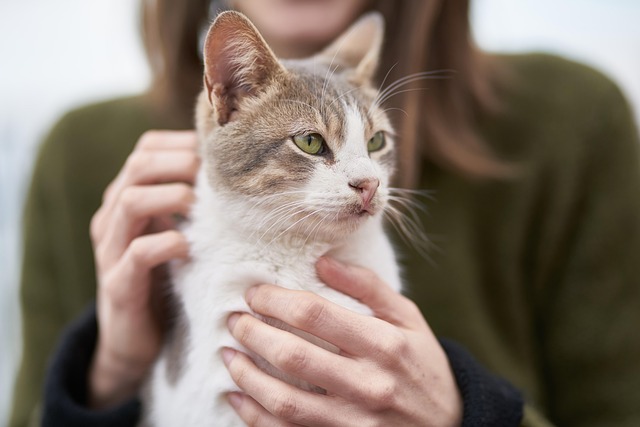
Study Finds 16% of Cats Test Positive for FIV in High-Risk Areas
Fenbendazole Granules for Cats and FIV Learning
New studies indicate that 16% of cats in high-risk populations test positive for Feline Immunodeficiency Virus (FIV). This latent viral infection weakens immunity and makes cats susceptible to secondary infections, including intestinal parasites like Giardia and lungworm. Early use of fenbendazole granules for cats is critical as it sustains overall health as well as reducing the complications associated with FIV. Fenbendazole for cats helps to manage parasites effectively and safeguard cats’ immune systems when they are exposed to high-risk settings like shelters and multi-cat households.
Veterinarians emphasize that the integration of parasite prophylaxis with frequent FIV surveillance enhances long-term outcomes. Importantly, asymptomatic cats are also capable of carrying parasites, which can exacerbate FIV-induced immune suppression. This makes frequent dosing with fenbendazole granules for cats a critical part of feline welfare protocols.
FIV in Cats and Parasite Interactions
The Association Between FIV and Parasites
FIV-positive cats already have weakened immune response and are predisposed to having intestinal parasites. The infections of Giardia, lungworm, or other parasitic worms worsen systemic stress and induce secondary complications. Adding fenbendazole for cats to standard care protocols reduces parasite burdens and favors a general condition. Studies show that fenbendazole for cats giardia treatments effectively eliminate protozoan infections and minimize systemic stress in immunocompromised cats.
Internal parasite control is particularly crucial in shelters where multiple cats are confined together. Routine dosing of fenbendazole cat granules ensures that even cats at risk receive proper protection against infection that would otherwise worsen their FIV-related immunosuppression.
Fenbendazole Cat Dosage Considerations
Ensuring the correct fenbendazole cat dose for safety and efficacy is crucial. Weight calculations guide veterinarians to select the correct dosage, particularly for kittens and FIV-infected cats. Correct fenbendazole dosage for cats prevents underdosing, which leads to chronic infection, and overdosing, which leads to gastrointestinal upset.
In kittens, fenbendazole kitten dosage at appropriate intervals offers early parasite control without affecting health. Shelters prefer dosing protocols to guarantee parasite clearance, lowering reinfection risks. In FIV cats, compliance with weight-adjusted fenbendazole cat dosage is critical to avoid further stressing the immune system. Learn more about dosing regimes at toltrazurilshop.
Controlling Fenbendazole for Cats Side Effects
Although safe in general, side effects of fenbendazole for cats side effects such as mild vomiting or loose stools can occur. Treatment with food and close monitoring of hydration ensures a quick recovery. In FIV-positive cats, close observation throughout the course of treatment is recommended to immediately address any complications.
High-risk shelter veterinarians verify that the combination of FIV testing with fenbendazole granules for cats has proven to be very efficient in reducing parasite reinfection rates. Regimen treatment schedules also promote long-term health and reduce stress in multi-cat environments.
Rapid Parasite Management for FIV-Infected Cats
Fenbendazole for Cats Lungworm Protocols
Lungworm infections, though less common, can become aggravated due to respiratory stress in FIV-positive cats. Prompt treatment with proper fenbendazole for cats lungworm eliminates infection with minimal immune challenges, highlighting the importance of active parasite screening in high-risk groups. Early treatment is essential; delayed treatment can produce severe respiratory consequences, especially in immunocompromised cats.
Long-Term Monitoring and Fecal Testing
Routine fecal examination is necessary to establish that fenbendazole granules for cats fully destroys intestinal parasites. Routine monitoring prevents reinfection, particularly in multi-cat households or shelters. Contact Total Tails for parasite testing details. Fecal examination also tracks potential complications in FIV-positive cats, keeping treatment timely and effective.
Merging FIV Awareness With Parasite Control
Understanding FIV’s role in immunosuppression highlights the importance of applying antiviral awareness in addition to effective parasite control. The use of fenbendazole for cats within structured preventive campaigns reduces opportunistic disease and improves immune responses, even in risk-exposed environments. Merging FIV testing with parasite control provides a holistic approach to safeguarding cats against illness while warding off secondary issues.
Many owners find that a single dose is sufficient. In reality, repeated fenbendazole dosing in cats, as prescribed by veterinarians, is required for long-term parasite elimination. FIV-positive cats, particularly, might need scheduled follow-ups to confirm parasite elimination and overall health evaluation.
A 2023 Journal of Feline Medicine and Surgery study reported that 16% of cats in high-risk urban communities were positive for FIV (DOI: 10.1177/1098612X23100291). FIV-infected cats are more susceptible to gastrointestinal parasites, and hence fenbendazole granules for cats become an essential component of prevention treatment. Research further reveals that inclusion of weight-based fenbendazole cat dosage with periodic fecal examination reduces reinfection by great margins and keeps feline health in general good condition.
Extrapolative studies by the American Association of Feline Practitioners confirm the association between compromised immunity and higher parasite load in FIV-infected animals. Successful control of parasites with the employment of fenbendazole for cats use is also critical in minimizing these risks, and continued dosing and surveillance consequently become a necessity.
Guidance for Cat Owners
Routine monitoring for gastrointestinal changes, loss of appetite, or behavioral alterations is essential in FIV-positive cats. Administration of fenbendazole granules for cats on a regimen recommended by veterinarians serves as effective parasite control. Accurate dosing of fenbendazole for cats, careful monitoring for adverse effects, and incorporation of lungworm and Giardia protocols ensure long-term health in high-risk populations.
The owners must ensure treatments like fenbendazole kitten dosage are followed for kittens and dosing for everyone is weight-based. Parasite control combined with FIV information maintains the cat’s immune system healthy, reduces the risk of reinfection, and promotes overall well-being.
